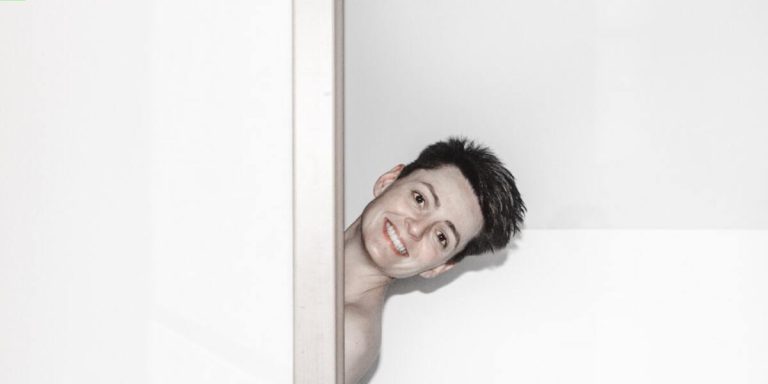Does Taking Testosterone Cause Hair Loss? Exploring the Connection Between Hormones and Baldness
The question “Does taking testosterone cause hair loss?” often lurks in the minds of many individuals who are either consuming it as a supplement or dealing with changes in their hormonal profile. Some notice an alarming increase in the amount of hair strands on their comb, while others witness significant thinning along their scalp lines after starting dosage. This isn’t coincidental; there’s some robust scientific reasoning linked to this occurrence.
To understand why and how increased levels of testosterone might induce hair loss, we’ll need to dive deep into human biology’s core elements. It includes understanding our hormones’ role-playing, particularly testosterone’s part concerning baldness. The complex relationship between hormone fluctuations and your locks can be surprising for some – illuminating contradictory beliefs related to male hormones and patterned baldness.
Did you know?
Contrary to popular belief, taking testosterone doesn’t directly cause hair loss. It’s the conversion of this hormone into DHT (dihydrotestosterone) which can lead to thinning and shedding if your hair follicles are genetically sensitive to it.
Understanding the Link Between Testosterone and Hair Loss
In the quest to understand hair loss causes, one factor that commonly surfaces is testosterone. This hormone, prominently found in males but also present in females to a lesser extent, has been widely linked with patterns of baldness. Researchers note that it’s not merely testosterone alone causing hair thinning or falling out; instead,it hinges on how your body reacts and processes it.
There seems to be a popular consensus pointing towards Dihydrotestosterone (DHT), an offshoot product when testosterone interacts with the enzyme 5-alpha-reductase residing in scalp follicles. Elevated levels of this by-product can shrink hair follicles over time causing them unableto create new strands effectively leading up to what we recognize as male pattern baldness!
However, contrary to common belief, taking additional doses of Testosterone may not directly push you into losing more locks! It primarily depends on individual bodily reactions towards hormonal shifts particularly if there are genetic predispositions towards sensitivity for higher conversion rates resulting in excessive amounts of DHT.
While external influence through supplementary boosting could accelerate pre-existing conditions,the correlation between added intake and direct increase isn’t always linear as often believed!
Remember: Not everyone who takes extra shots will experience similar outcomes.Yet those sensitive must exercise caution before stepping into therapeutic uses or fitness enhancements involving such hormonal manipulations.To keep their lush locks intact,a balanced informed approach trumps any hasty decisions.In conclusion,knowing our bodies’ unique responses hold considerable sway proper management prevention strategies around prevalent issues like these.
Exploring Androgenetic Alopecia: The Role of DHT in Balding
Androgenetic alopecia, often referred to as male-pattern or female-pattern hair loss, is the most common type of progressive hair thinning and balding. This condition can start affecting people in their early twenties, leading to significant variation in patterns of baldness among individuals.
The key player behind this form of hair loss is Dihydrotestosterone (DHT), a derivative hormone from testosterone. Testosterone undergoes conversion by an enzyme named 5-alpha reductase into a more potent hormone – DHT.
One question that frequently pops up when discussing this topic is: “Does taking testosterone cause hair loss?” The answer isn’t straightforward because it’s not simply about having high levels of testosterone but rather its conversion into DHT that leads to Androgenetic Alopecia.
Hair follicles shrink over time due to continuous exposure to DHT causing them eventually unable enough supporting new growth which results in patterned baldness.
Moreover, genetics play a crucial role too. If you have inherited genes making your scalp’s hair follicles sensitive towards circulating amounts of DHT; even normal levels could lead these susceptible follicles shrinking ultimately resulting lost hairs earlier than others who haven’t got such genetic concern.
Hormonal Imbalances and Their Impact on Hair Follicles
Hormonal imbalances play a crucial role in hair loss, particularly the testosterone levels. Many are left wondering “does taking testosterone cause hair loss?” The answer isn’t as straightforward.
Testosterone itself doesn’t directly contribute to hair loss; however, it’s its byproduct known as Dihydrotestosterone (DHT) that does so. When there is an increased level of this hormone within your body, you’re more prone to experience hair thinning or baldness over time.
Androgenetic alopecia commonly referred to as male pattern baldness, primarily stems from excessive amounts of DHT binding with receptors in the scalp’s follicles. This interaction shrinks the follicle size and shortens their growth cycle leading to weakened strands which eventually fall off without replacement – causing notable hair thinning and receding patterns on different areas of your head.
Moreover, when one takes additional supplements or undergoes treatments that boost testosterone levels artificially like steroids for muscle gain purpose – they inadvertently throw off their hormonal balance spiraling into higher production rates for DHT too!
In contrast though if taken at proper therapeutic doses under medical guidance these medications can actually minimise such risks significantly revealing how much controlled dosage plays a part here too apart from just balancing hormones per se – critical knowledge bit worth keeping handy next time whilst discussing about ‘hair loss causes’.
Common Myths vs. Facts About Testosterone and Hair Thinning
It is a common misconception that taking testosterone will inevitably lead to hair loss or thinning. The perception stems from the notion that elevated levels of male hormones, particularly testosterone, can trigger heightened Dihydrotestosterone (DHT) production – an androgen known for shrinking hair follicles which eventually leads to baldness.
However, science paints a more nuanced picture. Testosterone alone isn’t actually the root cause of this issue but rather its derivative DHT when present in excess amounts. Furthermore, individual genetic sensitivity significantly determines whether you’re predisposed to losing your hair due to increased DHT concentration or not.
Therefore implying everyone who takes additional testosterone should expect diminished locks doesn’t hold up scientifically.
Moreover, recent studies conducted in 2023 have revealed compelling evidence pushing back against these myths concerning testosterone usage and hair loss connection. They underline how underlying factors such as stress levels, nutritional imbalances and age are just as imperative if not more so than hormonal disposition relating to overall scalp health thereby challenging the often oversimplified narrative surrounding Hair Loss Causes.
Debunking Misconceptions: Does Increased Testosterone Lead to Baldness?
There’s a widespread belief that an increase in testosterone levels can directly contribute to hair thinning or baldness. This misconception stems from the connection between androgens, specifically Dihydrotestosterone (DHT), a derivative of testosterone, and male pattern hair loss.
However, it is crucial to understand that while there is indeed some link between testosterone and hair loss, the relationship isn’t as straightforward as most assume. In simpler terms: higher testosterone doesn’t necessarily mean more significant hair loss.
The hormone responsible for causing your strands to fall off prematurely is not exactly Testosterone but its byproduct—DHT. When your body has too much free-flowing Testosterone (associated with increased levels), chances are it might convert into DHT using an enzyme called 5-alpha reductase.
But this transformation process alone cannot cause your tresses’ downfall; you also need genetic predisposition towards sensitivity to DHT effects on scalp follicles—the key culprit behind Androgenetic alopecia aka Male Pattern Baldness—a common form of hair loss in men.
Contrarywise, several researches have shown low serum total Testosterone level associated with alopecia severity suggesting contrary evidence against popular myth – “Does taking testosterone cause Hair Loss?” The complexity lies within our unique biological response—it varies person-to-person making blanket generalizations about any aspect inaccurate—including does taking hormones lead one hatless?
Scientific Evidence: Correlating Testosterone Levels with Hair Shedding
Many people harbour the belief that taking testosterone supplements or having high levels of this hormone can cause hair loss. However, it’s essential to understand the science behind how testosterone affects hair growth before jumping to conclusions.
Let’s decipher whether does taking testosterone cause hair loss indeed?
Firstly, according to several scientific studies published recently in 2023, there is no direct correlation between simply having high levels of testosterone and experiencing thinning or baldness. All humans have varying degrees of hormones in their body – some more than others which makes them unique.
1) Not everyone who has increased DHT experiences thinning/baldness.
2) Some individuals without elevated amounts also lose their locks at an alarming rate – indicating factors beyond only hormonal influence are playing roles here too! Thus proving further that simple ‘taking testosterone = Hair Loss’ equation isn’t entirely accurate!
Preventative Measures for Testosterone-Induced Hair Loss
In an era where vanity holds a significant place, hair loss can be devastating and often leads to self-esteem issues. One primary concern that frequently arises is the correlation between testosterone intake and hair loss. Numerous studies have bolstered ties establishing how escalated levels of this hormone may lead to thinning or greying tresses over time.
- Adopting a healthy lifestyle that includes regular exercise to manage hormonal imbalances, including high levels of DHT from testosterone.
- Eating balanced diets rich in vitamins, especially vitamin E, which promotes healthy growth.
- Practicing relaxation techniques such as yoga or meditation because stress can lead to more hormone production and increase the risk of premature balding.
Medical Interventions: Treatments that Counteract Hormonal Effects on Scalp Health
In the intricate dance of hormonal balance, testosterone often takes center stage. But does taking testosterone cause hair loss? The answer is nuanced, yet confidence-restoring steps can be followed to curb its effects.
Firstly, we must grasp that it’s not just pure testosterone triggering this frustrating response; a potent derivative called dihydrotestosterone (DHT) plays villain here. DHT clings onto follicle receptors in your scalp and gradually shrinks them causing thinning or complete disappearance of hair – an unfriendly encore no one desires.
Fortunately for us living in 2023, medical advances have surpassed leaps and bounds offering numerous treatments aimed at counteracting these hormonal effects on our precious mane health.
1. Topical solutions: Minoxidil-based products are readily available over-the-counter without prescription even online! It works by prolonging the growth phase thereby giving each strand extended time before inevitable shedding begins.
2. Oral medications: Finasteride tablets work systemically blocking conversion from harmless Testosterone into malicious DHT spell-binders thus preventing further damage to your besieged locks!
3. Low-Level Laser Therapy (LLLT): This techy intervention needs professional guidance with precise wavelengths stimulating follicles akin watering parched soil rendering healthy plant growth overtime.
4.Lifestyle adjustments: Incorporating strength-building exercises along with balanced diets rich in proteins but low glycemic index carbs could modulate systemic hormone levels aiding overall wellness including improved vigor of those cherished tresses!
Lifestyle Adjustments to Manage Hormone-Related Hair Decline
The relationship between increased testosterone levels and hair loss can be quite a stressful one. The burning question, “does taking testosterone cause hair loss”, has been haunting countless individuals. It is 2023 now, and we’ve come a long way in understanding this intricate mechanism.
Manage hormone-related hair decline effectively with these lifestyle adjustments:
- Limit alcohol consumption, as it can increase DHT production.
- Exercise regularly to help balance hormone levels.
- Maintain a balanced diet rich in vitamins and minerals to support hair health.
- Reduce stress through relaxation techniques like meditation and yoga, which can lower cortisol levels that may trigger DHT production.
- Consult with a healthcare professional about medications that can manage DHT levels and promote hair growth.
1. **Balanced Diet**: First off, maintain a diet rich in protein, Iron, Vitamin A & C along with omega-3 fatty acids to strengthen your follicles’ health.
2. **Regular Exercise**: Walking for at least 30 minutes daily helps regulate hormones alongside improving overall physical well-being.
3. **Minimizing Stress** should become part of our everyday routines as it plays an exceptional role in minimizing hormonal imbalances that lead to hair fall issues.
Conclusion
In wrapping up, it’s clear that the relationship between testosterone and hair loss isn’t as straightforward as many assume. While there is undeniably a connection between hormones and baldness, genetics also play an essential role. So the answer to “does taking testosterone cause hair loss?” depends largely on your unique genetic makeup.
We trust you’ve found this exploration enlightening! Don’t stop here—there are countless other factors at play when it comes to hair loss causes in our increasingly complex world. We invite you to continue exploring our website where we delve deeper into these topics with measurable facts and intriguing insights for understanding all about Hair Loss Causes better!







